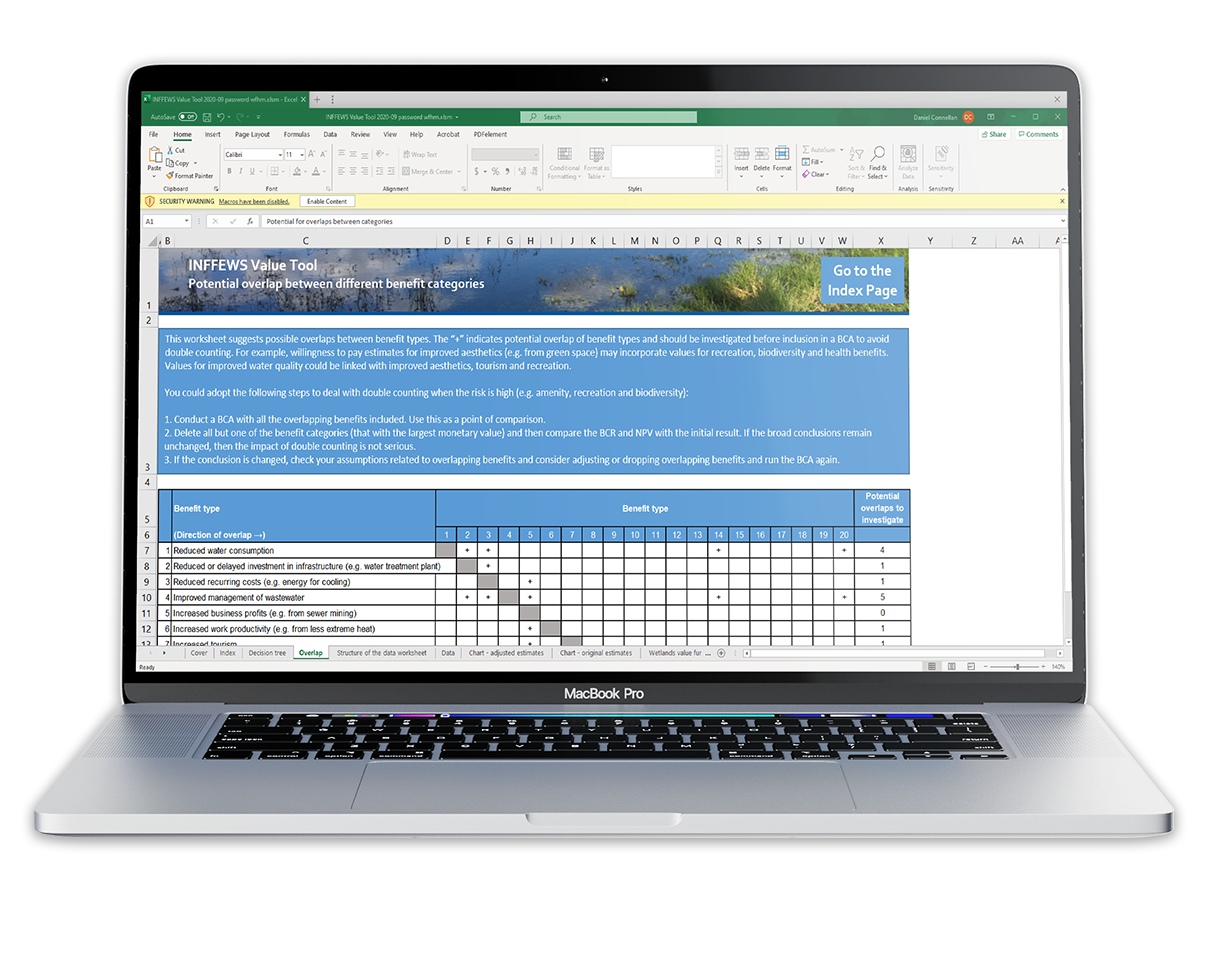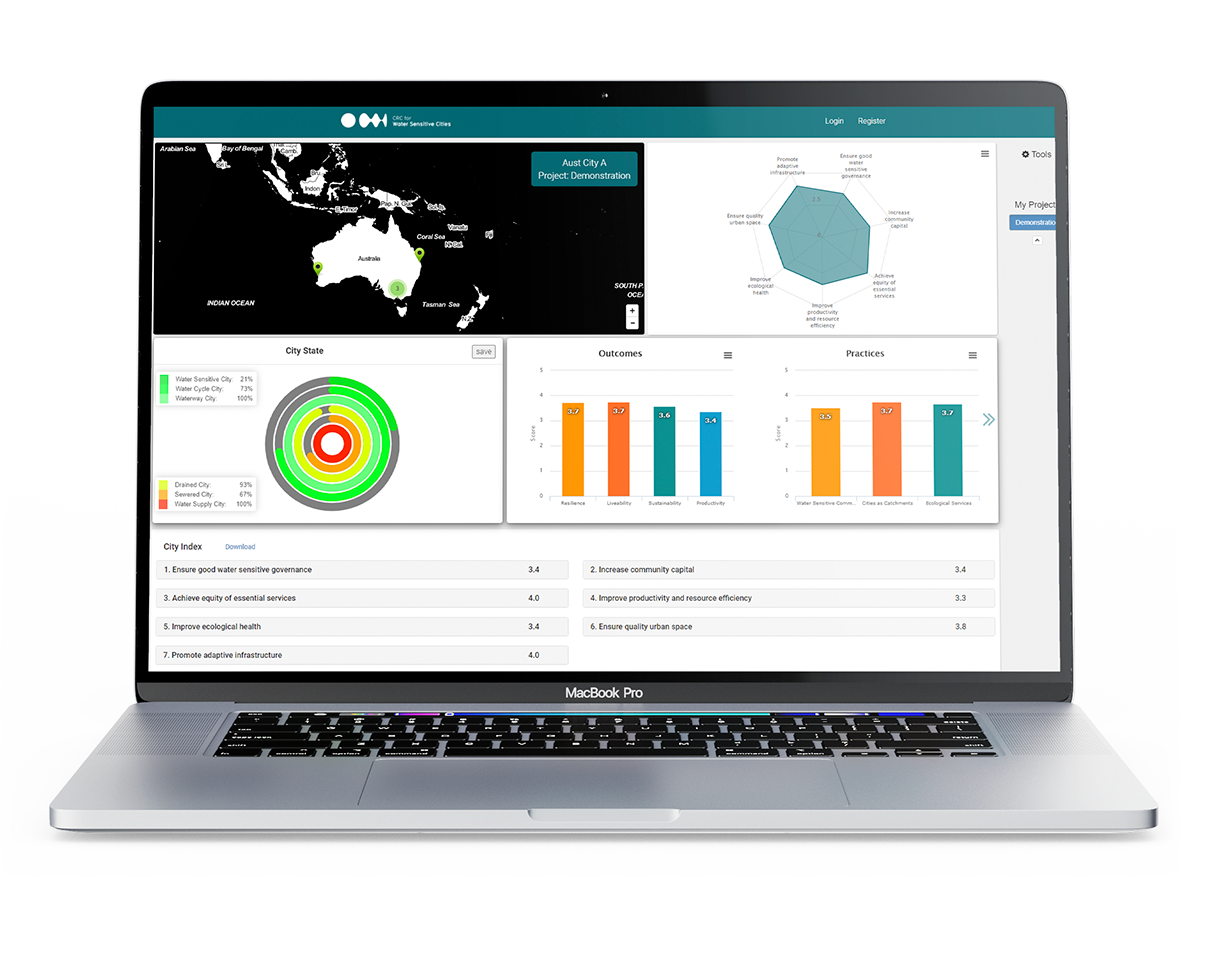Training programs for key Water Sensitive Cities tools
Water Sensitive Cities Australia is developing training programs for some key Water Sensitive Cities tools.
Identifying strategies to progress transition to a water sensitive city
We know the transition to a water sensitive city takes time. Many factors can influence progress, particularly when new technologies and practices challenge business-as-usual approaches.
The Transition Dynamics Framework (TDF) is one of several transition tools developed by the CRC for Water Sensitive Cities, to help cities assess their transition progress. In particular, the TDF helps cities:
- understand their current position in the transition to a water sensitive future
- identify priority strategies for advancing the transition
- set the baseline for monitoring progress over time.
It helps link the results of the WSC Index (which identifies a city’s current water sensitive city performance) with a city’s water sensitive vision. In particular, it assesses the presence or absence of enabling factors that support transition to water sensitive approaches, and provides a checklist of the factors that should be deliberately and sequentially built up to accelerate change.
The training is part of an accreditation process for practitioners:
- Stage 1 – Practitioners learn about the TDF and the Management Actions Tool (MAT), including how to apply them. We are currently developing a manual that explains the development and application of these tools. The training also demonstrates how to use the software.
- Stage 2 – Once they’ve completed the Stage 1 training, practitioners wanting to deliver accredited TDF workshops must complete an evaluation task. This task involves running a TDF workshop that is then evaluated by WSCA.
This training program will be delivered later in the year. If you have any questions, you can email us at admin@crcwsc.org.au.


Developing business cases for integrated water management projects
Victoria’s Integrated Water Management (IWM) Forums identify, prioritise and oversee the implementation of collaborative water opportunities. We’re developing training to help Forum participants identify and quantify the benefits and costs of integrated water management projects in regional and rural locations throughout the state.
Specifically, the training will cover principles of economic evaluation and business case development, based on the CRCWSC’s 2 economic evaluation tools:
- Value Tool – This tool gives practitioners a way of valuing the benefits of water sensitive projects that are not traded in markets, such as the social and environmental benefits. This comprehensive Excel-based database contains 2000+ non-market values of water sensitive systems and practices.
- Benefit: Cost Analysis Tool – This tool compares the benefits of a water sensitive project with its costs, to assess whether it’s worthwhile. You can use this Excel-based tool to develop business cases for water sensitive projects, assess water sensitive investments and understand the distribution of costs and benefits from water sensitive projects.
The training introduces the tools and then demonstrates how they can be applied regional and rural locations. If you are interested in attending this training, you can email us at admin@crcwsc.org.au.
Water Sensitive Cities Australia’s mission is to mainstream water sensitive practices to make them business as usual. A key strategy is to build knowledge and capacity to apply WSC principles and practices at scale. Training sessions such as these are an integral part of that strategy.
You’ll find out more information about Water Sensitive Cities Australia here.